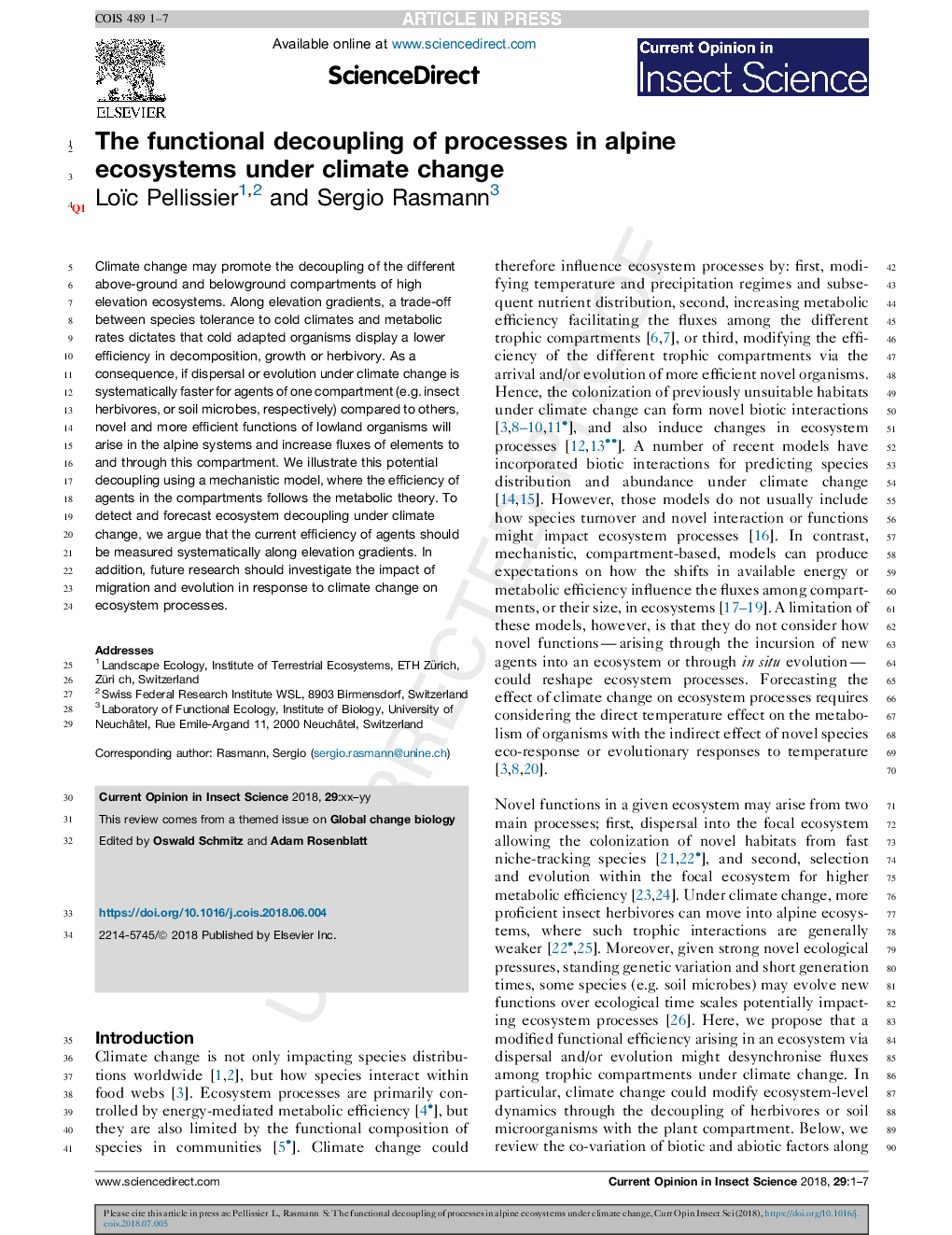| Article ID | Journal | Published Year | Pages | File Type |
|---|---|---|---|---|
| 8878407 | Current Opinion in Insect Science | 2018 | 7 Pages |
Abstract
Climate change may promote the decoupling of the different above-ground and below-ground compartments of high elevation ecosystems. Along elevation gradients, a trade-off between species tolerance to cold climates and metabolic rates dictates that cold adapted organisms display a lower efficiency in decomposition, growth or herbivory. As a consequence, if dispersal or evolution under climate change is systematically faster for agents of one compartment (e.g. insect herbivores, or soil microbes, respectively) compared to others, novel and more efficient functions will arise in the alpine systems and increase fluxes of elements to and through this compartment. We illustrate this potential decoupling using a mechanistic model, where the efficiency of agents in the compartments follows the metabolic theory. To detect and forecast ecosystem decoupling under climate change, we argue that the current efficiency of agents should be measured systematically along elevation gradients. In addition, future research should investigate the impact of dispersal and evolution in response to climate change on ecosystem processes.
Related Topics
Life Sciences
Agricultural and Biological Sciences
Agronomy and Crop Science
Authors
Loïc Pellissier, Sergio Rasmann,
